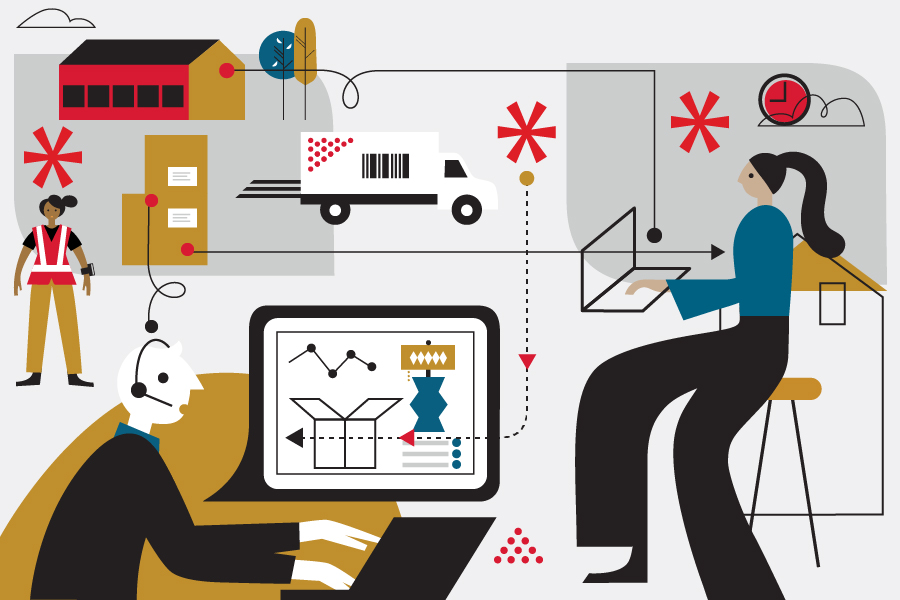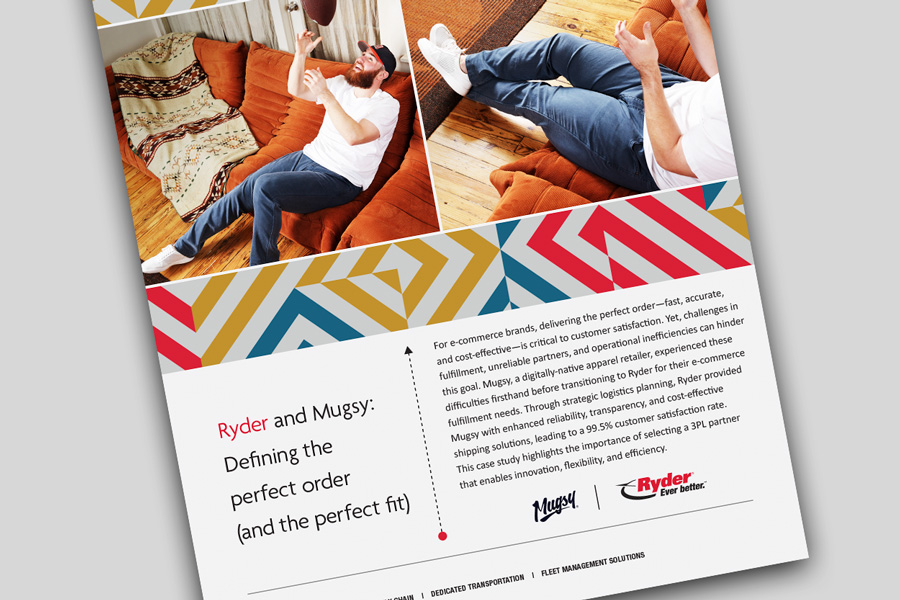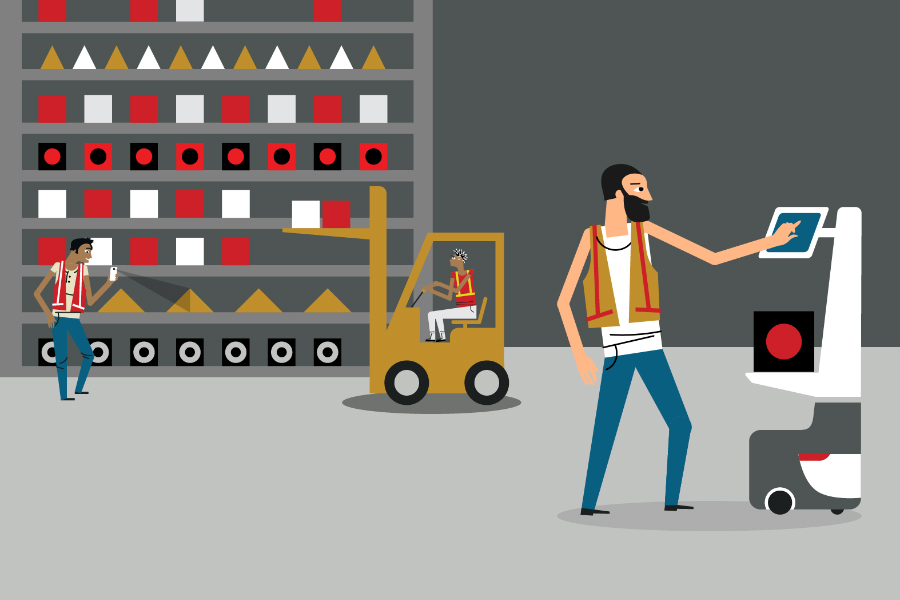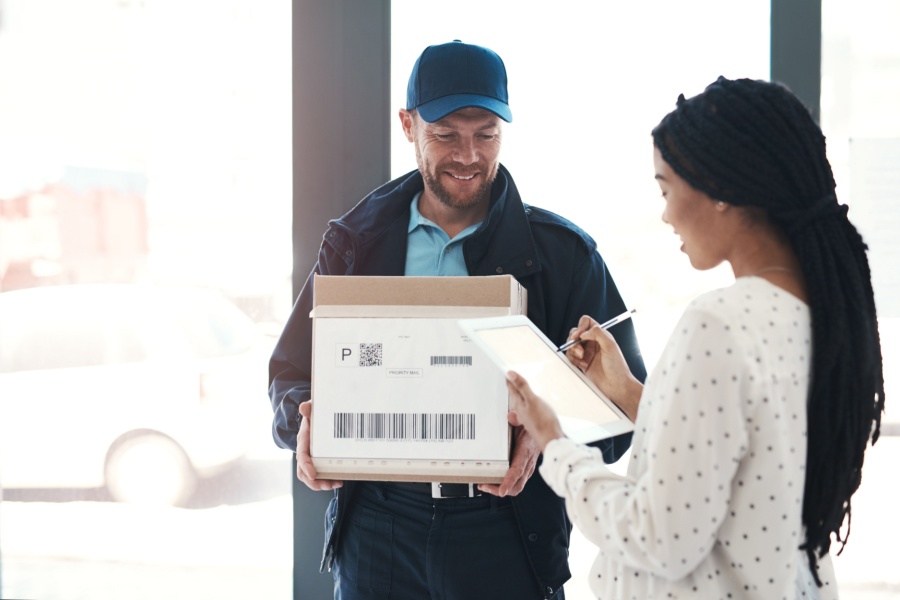Whether you’re an emerging or an established brand, it’s no secret that e-commerce fulfillment involves a lot of moving parts. And, there’s still confusion over what should take place once your customer hits the checkout button.
If you don’t have a good level of insight into what e-commerce order fulfillment requires to create positive customer experiences, it’s difficult to make a decision on which order fulfillment model and strategy is best for your business. The choice can have adverse consequences, including delays to order fulfillment and dissatisfied customers – two things you want to avoid.
In this article, we explore order fulfillment in e-commerce, what it entails, and what you can do to perfect it so your customers get what the products they want, when they expect them.
What is Order Fulfillment?
Order fulfillment refers to the meat of the ecommerce fulfillment e.g. picking and packing each order to get it ready for shipping. As soon as an online order has been received, the order fulfillment process needs to start as quickly as possible to achieve higher levels of customer satisfaction.
Picking for orders can be completed using a variety of strategies, such as zone picking, where workers only pick SKUs in their dedicated section of the warehouse, or batch picking, where workers are assigned a group of identical orders to pick for. The packing process can be either simple or more complex, depending on the blueprint your business designs, such as using custom packaging in place of generic packaging to enhance the customer experience.
6 Must Have Order Fulfillment Services
1. Real-time inventory management
Whether your inventory is in one place or distributed across multiple fulfillment centers, having a unified approach to inventory management is vital to keep track of your SKUs and make informed decisions about where and when to restock.
Excess inventory and dead stock are recurring problems in e-commerce, especially for high-volume, high SKU count brands in apparel and footwear. While it isn’t always possible to combat all the causes of excess inventory, it’s far more likely to become a problem if your 3PL partner doesn’t offer real-time inventory management as a fulfillment service.
Inventory visibility involves much more than knowing where your inventory is and how much you have; it’s also about being able to follow every step of the order fulfillment process as it happens.
Being able to see into your fulfillment center each time an order has been picked, packed, and shipped is a great confidence boost. It also enables you to identify potential issues before they happen, such as insufficient inventory to fulfill orders or delivery delays that could cause customer service issues.
Ryder assists customers in executing a flawless e-commerce experience via its direct-to-consumer fulfillment platform RyderShip™. An intuitive interface puts streamlined, real-time inventory and order management at your brand’s disposal. Track inventory levels, pause, edit, or cancel orders, and manage returns for detailed insights into your fulfillment operation.
2. Custom fulfillment services
When e-commerce is still firmly in the era of plain cardboard boxes and third-party marketplaces, it’s near impossible to build a meaningful relationship with your customer. For brands who are looking for a competitive differentiator, the time for one-size-fits-all fulfillment solutions has passed.
Choosing an e-commerce fulfillment partner that offers custom fulfillment services is a powerful advantage in a space where the majority of brands are still relying on generic packaging and pick and pack processes to fulfill customer orders. The ability to customize the fulfillment process with value-added fulfillment services helps to kickstart your fulfillment marketing efforts and foster higher levels of brand loyalty.
Some of your SKUs may have very specific needs when it comes to packaging or kitting. It’s important that your 3PL is able to provide these fulfillment services while also providing you with other unique marketing opportunities.
For example, if you’re a beauty brand that wants to offer a seasonal gift box for the holiday season, this requires a fulfillment service workflow that includes specialized packaging, subassembly, and product sampling. If your fulfillment company offers limited 3PL value-added services, this impacts your ability to offer customers a memorable unboxing experience.
Ryder offers a full suite of custom fulfillment services, including branded packaging, product kitting, inserts, and product sampling to assist brands in creating their ideal delivery experience. The Order Rules functionality on the RyderShip™ platform gives merchants granular control over implementing these services, with packing and shipping notices that can be set to fire automatically when an order contains certain SKUs.
3. Multiple fulfillment centers
While it’s tempting to stick with one order fulfillment center to keep your fulfillment strategy as simple as possible, multi-node fulfillment is an order fulfillment service that your brand shouldn’t ignore.
Centralized fulfillment comes with several benefits, such as a low fulfillment cost and making it more straightforward to manage inventory. However, it does have some drawbacks.
The customers furthest away from your fulfillment center are looking at longer last-mile delivery times, while your cost to ship orders can end up ballooning to meet customer expectations for rapid delivery.
This is further complicated because fast-growing brands aren’t always able to predict where future growth is going to come from. Many merchants end up missing out on valuable growth opportunities because their provider’s facilities are restricted to just one or two regions.
That’s why it’s so important to choose a fulfillment provider who can provide you with a network of fulfillment centers to lower delivery timeframes and access more affordable shipping. Being able to store inventory in multiple warehouse locations also enables you to make smarter, data-driven decisions about where to keep certain SKUs according to regional demand.
The Ryder fulfillment network boasts 25+ fulfillment centers at strategic locations nationwide, totaling over 10 million square feet of warehouse space close to key transportation routes and consumer hubs. We work closely with both single and multi-node customers to determine their needs and design the optimum fulfillment and inventory storage strategy for their needs.
4. Technology integrations with the rest of the e-commerce ecosystem
3PLs aren’t just a place where orders are picked packed and shipped. They’re also the centerpiece of a vast network of tools and major e-commerce platforms that power the e-commerce ecosystem.
In sum, a 3PL needs to be a suitable technology partner if your brand is going to achieve fast, flawless fulfillment.
Although not traditionally thought of as order fulfillment services in their own right, seamless technology integrations help to equip your business with better insights and more value-added services that streamline the customer experience.
Having to build integrations independently between your 3PL and other systems is an expensive and time-consuming process for your brand. Whether your brand is interested in a returns management portal or greater business intelligence, fulfillment partners that can connect you with best-in-class e-commerce and fulfillment service providers are an invaluable resource to help your business grow.
Ryder offers a range of native integrations with leading e-commerce platforms including Shopify, Happy Returns, Skubana, and more that enhance your online store and help you manage multiple sales channels more effectively. Best of all, our integration network is continuously growing to supply our customers with smarter solutions to refine their fulfillment and shipping process.
5. Rate shopping software to lower shipping costs
Of all the e-commerce fulfillment services that e-commerce businesses worry about, keeping shipping rates affordable is a constant pain point. The growing expectations for free shipping are forcing many brands to shoulder the cost, reducing already narrow profit margins.
If your e-commerce fulfillment company only uses a single parcel carrier to ship orders, you’re at the mercy of whatever General Rate Increase, peak season, or fuel surcharges the carrier chooses to put in place. Big increases can occur with little warning, causing spikes in shipping costs that could result in your brand making a loss.
For shipping to be an affordable and reliable order fulfillment service, you need to look for e-commerce fulfillment companies that can supply rate shopping software to compare rates between multiple shipping carriers in real-time. Being able to compare carriers instantly to find the best balance of cost versus speed is a powerful tool to optimize your shipping strategy and keep shipping costs down.
The Ryder SmartRate selection tool is an invaluable fulfillment service that allows an online store to compare shipping rates in real-time from regional, domestic, and international carriers. We analyze your order history to determine which rates meet your cost requirements while keeping transit times in line with customer expectations. SmartRate Selection offers you the ability to set the most affordable rate as the default option for your orders, or to select different carriers for different types of orders depending on DIM weight or destination.
6. Returns management
Your e-commerce business can’t only think about outbound logistics when choosing an order fulfillment company; you also need to consider what happens when customers return items.
Returns management is a whole spectrum of e-commerce fulfillment services that require expert handling to get your merchandise back on the shelf as quickly as possible. Processing returns and refunds, managing return shipping, adjusting inventory levels, and reconditioning items for resale are all critical to make the returns process run smoothly. If the returns experience is not satisfying for your customers, they’re unlikely to make a repeat purchase.
You should be asking potential fulfillment companies whether their fulfillment centers use their own return processing software, or if they can integrate with any third-party returns management platforms that can process returns on your behalf. Bringing in an external solution can help to lower return costs while also optimizing your returns workflow.
D2C brands are currently experiencing more than their fair share of challenges, especially as competition and expectations for better customer service increase. Deciding to outsource fulfillment is not easy, especially when you’re accustomed to having complete control over your fulfillment strategy. But by doing so, you stand to gain access to better cost savings – and just as importantly, valuable time back to invest in your business.
Partnering with an experienced e-commerce fulfillment service provider like Ryder offers the ideal fulfillment solution for both emerging and established D2C brands. Our services across e-commerce, retail, and wholesale enable e-commerce businesses to scale and expand their sales channels with the support of a nationwide network of facilities and powerful automation technology. Contact us today to find out how outsourcing fulfillment can turbocharge your business.




